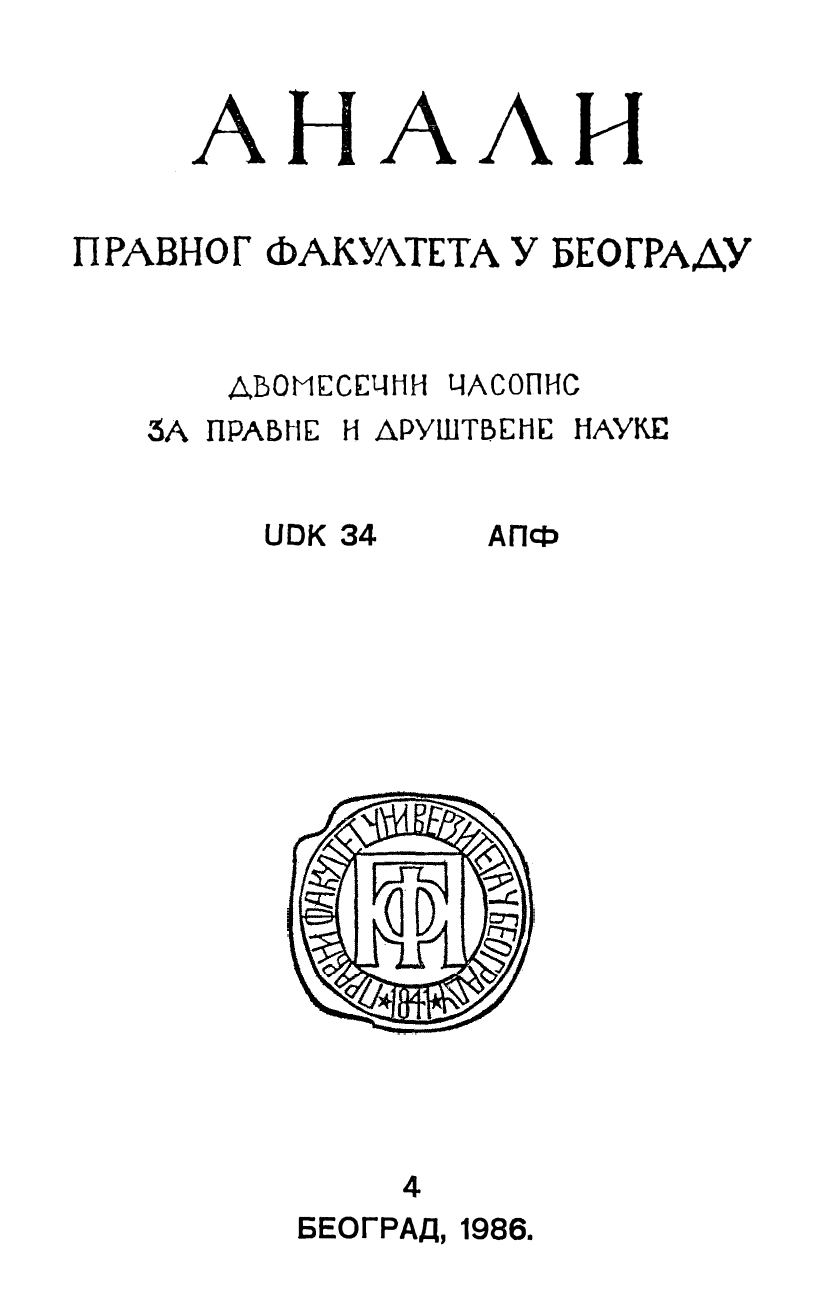НЕКИ ПРАВНИ ПРОБЛЕМИ КОЛОНАТА У КАСНОМ РИМСКОМ ЦАРСТВУ
SOME JURIDICAL PROBLEMS RELATED TO THE COLONATE IN THE LATE ROMAN EMPIRE
Author(s): Lujo MargetićSubject(s): Law, Constitution, Jurisprudence, Roman law
Published by: Правни факултет Универзитета у Београду
Summary/Abstract: The author briefly reviews recent opinions concerning the origin of the colonate, particularly those of Yugoslav authors (Horvat, Korošec, Stojčević, Romac), and some characteristic of that institution in the Early Roman Empire (Lex Manciana, Lex Hadriana, Decretum Commodi de salto Burunitano). After successfully challenging the thesis according to which the colonate has its origin in the times of Diocletian, the author attempts to prove that colonate was gradually developed during the reign of Constantine the Great, who used his imperial position to ensure significant economic advantages by hereditary binding of the state colons to the state lands. It is only with the decree (constitutio) of 332 (CT 5, 15, 1) that the same emperor, at least according to the author, prohibited the moving of colons from one land-owner to another. However, significantly enough, this decree concerns only the so-called coloni originarii. Besides, the colons are permitted to move from their land-owner into the state service. Deep changes of the legal status of the colons occur with the new dynasty in 364. First of all, in 365 a decree was issued, according to which the colons were not entitled to alienate even their own property without consent of their lords. According to one of them, the land-owners were authorized to collect from their colons taxes for the state. Another decree stated that the originarii could not be sold absque terra. The third decree concerns Illyricum „and the neighbouring regions". The colons of these territories are considered, in a certain way, „free" but they are deprived of the right of moving from the land. In other words, the legal status of these colons is superior to that of the adscripticii, but they are still, without any doubt, socially and juridically much under the fully free persons. The colons inscribed in the tax registers of their masters (adscripticii) sink still deeper with the decree of 396, according to which their belongings were treated as a mere peculium. Besides, they are permitted so sue their masters. In the. western part of the Empire, after 451, the colons are already „half-free" in the fullest meaning of the word: if a colon marries a daughter of a curialis, he has not the position of a husband, even if the marriage was concluded with the consent of her father. Some other problems are discussed too, such as the one concerning the spread of the patronage in the eastern and western parts of the Empire.
Journal: Анали Правног факултета у Београду
- Issue Year: 34/1986
- Issue No: 4
- Page Range: 285-308
- Page Count: 24
- Language: Croatian

